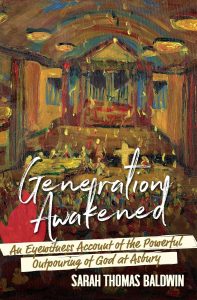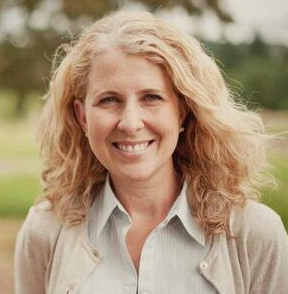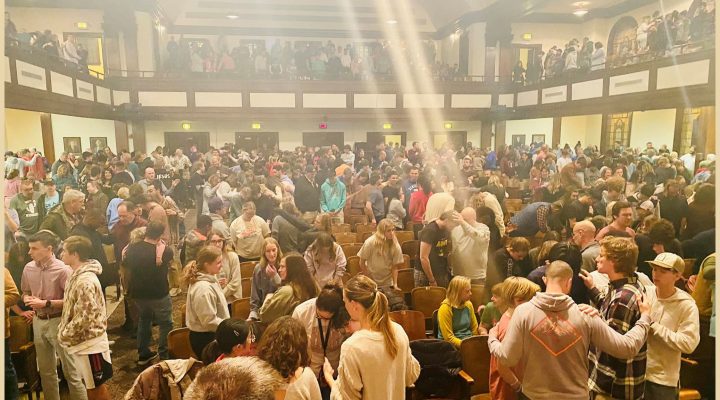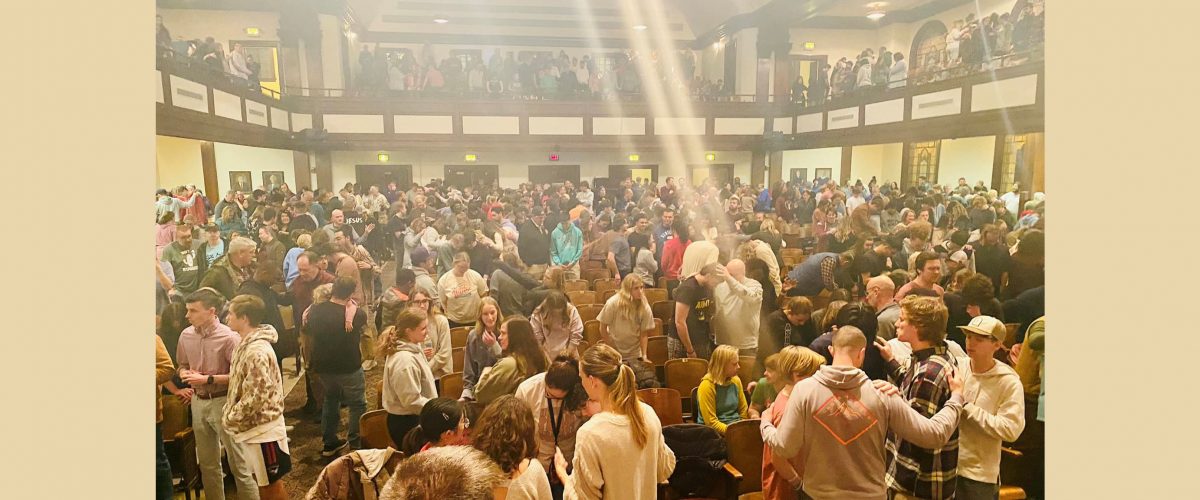The 2023 Asbury Revival confirmed young people are drawn to genuine and spontaneous expressions of faith and worship, said the author of a new book about the event that ignited a global religious and media sensation.
What many observers overlooked about the Feb. 8-24 revival at Asbury University in Wilmore, Ky., was Generation Z’s apparent preference for heartfelt adoration over glitzy, elaborate worship formats, said Sarah Thomas Baldwin, whose new book, Generation Awakened: An Eyewitness Account of the Powerful Outpouring of God at Asbury, is due for release in May.
 “They missed the simplicity and the authenticity of what was happening. We’re talking about young adults and teenagers, college and high school students, singing and worshiping for 16 days, 24 hours a day,” she said. “They weren’t musical or church superstars, but young people with a desire for authenticity and a yearning to know Jesus.”
“They missed the simplicity and the authenticity of what was happening. We’re talking about young adults and teenagers, college and high school students, singing and worshiping for 16 days, 24 hours a day,” she said. “They weren’t musical or church superstars, but young people with a desire for authenticity and a yearning to know Jesus.”
As vice president of student life at the evangelical Christian university, Baldwin was responsible for the logistics surrounding the ever-growing event, giving her a front-row perspective of what the school calls the “Asbury Outpouring.”
The gathering began as an impromptu, student-led prayer session after a morning chapel service before swelling into an national and international phenomenon that drew an estimated 50,000 participants from more than 30 states and 13 nations in just over two weeks.
While word about the revival spread initially through social media and later by national and international news reports, the around-the-clock prayer and worship remained mostly low-key and technology-free, Baldwin said.
“It was so simple. The gospel was preached simply.”
“It was so simple. The gospel was preached simply. There wasn’t anything weird or wacky. It was just basic and ordinary. It was clearly spontaneous, and the beauty of it was that people just wanted to be on their knees at the altar.”
Baldwin acknowledged such depictions of the student-led outpouring run counter to the view of Gen Z as largely non-religious, self-preoccupied and interested in little more than being social media influencers.
To be sure, research has documented declining religious affiliation among younger generations. Public Religion Research Institute reported in January that 33% of Gen Z adults and 36% of Millennials identify as religiously unaffiliated, compared to 26% of Gen X, 18% of Baby Boomers and 13% of the Silent Generation.
But the Asbury revival demonstrated that Christianity can be made relevant to young people by keeping it simple, Baldwin said. “One of the things the outpouring showed to the church, which is almost an indictment, is that overproduced, overhyped worship with all the technology and big screens is not necessarily the way forward.”
At Asbury, the revival’s student leaders and participants discouraged livestreaming during prayer and worship. Students typically left cellphones behind or placed them on the altar as they came forward to pray. And song lyrics were not projected onto large screens during worship.
“They wanted the whole thing to be unvarnished and unproduced because every moment of their lives is produced and put on a screen.”
“The students really responded to that. They wanted the whole thing to be unvarnished and unproduced because every moment of their lives is produced and put on a screen. They wanted to encounter Jesus without being recorded,” she said. “It tells me they clearly want embodied, personal experiences that are meaningful, not sensational.”

Sarah Thomas Baldwin
The experience met a thirst for authenticity many Gen Z students hadn’t previously encountered in church settings, she added. “As a church, we have allowed social media to be their disciplers and their influencers.”
Yet the students still found a way to align their penchant for technology with the movement of the Spirit they sensed in the revival, she said. “Texting and Instagram and Facebook were our students’ woman at the well. They used it tell their communities to come and see what was happening here at Asbury. It is testimony that God will use the media of the day for his purposes.”
Baldwin said she wrote Generation Awakened to alert churches to the spiritual needs of young people and to show that revival doesn’t require massive planning ahead of time.
“No one was in charge. We had responsibilities, but we were not in charge as an administration. We were right there with the students trying to discern what we sensed the Holy Spirit was doing. We were holding hands with them and praying with them,” she said.
“And we definitely did not plan this. If you had suggested to us six months earlier that we hold a revival for 50,000 people, we would have said the megachurch up the street is probably better suited for that.”
Related articles:
What I witnessed this week at the Asbury revival | Analysis by Laura Levens
About the Asbury ‘revival’: Time will tell | Opinion by Mark Wingfield


